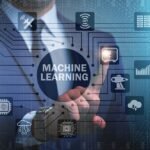How AI helps travel industry
/ /
AI brings several benefits to the travel industry by enhancing the travel experience, improving operational efficiency, and providing personalized services. Here are some ways AI helps the travel industry:
- Personalized Recommendations: AI algorithms analyze vast amounts of data, including user preferences, travel history, and social media activity, to provide personalized travel recommendations. This helps travelers discover relevant destinations, accommodations, activities, and attractions that align with their interests and preferences.
- Chatbots and Virtual Assistants: AI-powered chatbots and virtual assistants provide instant customer support and assistance 24/7. They can handle inquiries, booking requests, and provide real-time information about flights, hotels, and travel itineraries. Chatbots can efficiently handle routine tasks, freeing up human agents to focus on more complex customer needs.
- Dynamic Pricing and Revenue Management: AI algorithms analyze market trends, historical data, and competitor pricing to optimize pricing strategies. This enables airlines, hotels, and travel agencies to adjust prices dynamically based on demand, occupancy rates, and market conditions. AI helps optimize revenue management and offer competitive pricing to attract travelers.
- Fraud Detection and Security: AI algorithms are used to detect and prevent fraudulent activities in the travel industry. Machine learning models analyze patterns, anomalies, and historical data to identify potential fraud in transactions and bookings. This helps protect travelers’ financial information and ensures secure online transactions.
- Natural Language Processing (NLP) for Translation and Communication: NLP techniques enable real-time translation services, making it easier for travelers to communicate in foreign languages. AI-powered language translation tools help overcome language barriers, facilitating communication with locals and enhancing the travel experience.
- Recommendation Systems and Trip Planning: AI-powered recommendation systems analyze user preferences, historical data, and social media inputs to provide tailored travel itineraries and recommendations. These systems consider factors such as budget, travel dates, interests, and previous travel experiences to suggest personalized travel plans.
- Sentiment Analysis and Review Management: AI algorithms analyze customer reviews, social media sentiment, and feedback to gauge customer satisfaction. This helps travel businesses understand customer preferences, identify areas for improvement, and respond to customer concerns or complaints in a timely manner.
- Image Recognition and Visual Search: AI-powered image recognition technology allows travelers to search for destinations, landmarks, or attractions using photos. Visual search enables travelers to find information about specific locations or objects by simply uploading an image, enhancing the ease of travel planning and exploration.
These are just a few examples of how AI benefits the travel industry. AI technologies continue to evolve, offering innovative solutions to streamline operations, deliver personalized experiences, and improve customer satisfaction in the travel sector.
Posted in Travel


































